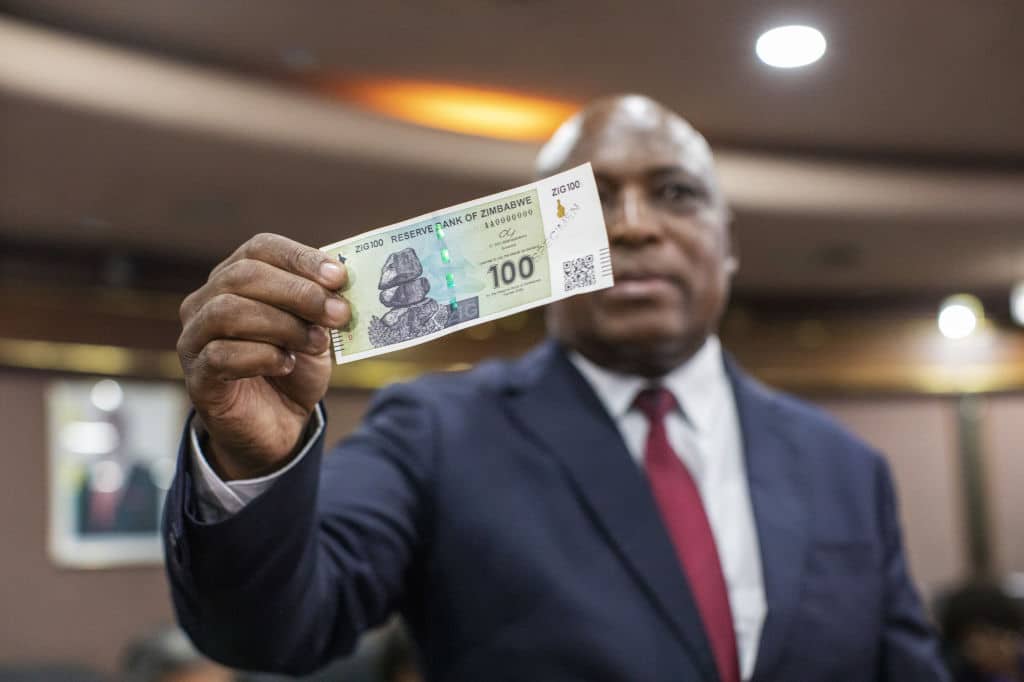In a move aimed at addressing decades of economic turmoil, Zimbabwe recently launched its new gold-backed currency, Zimbabwe Gold, ZiG, with hopes of bringing stability to its volatile financial landscape. However, experts warn that the road ahead for ZiG is fraught with challenges, with doubts lingering over its ability to enact meaningful change without systemic and governmental shifts to match.
Renowned South African economic analyst Daniel Silke cautions against placing too much faith in the currency’s ability to single-handedly solve Zimbabwe’s economic woes. Silke suggests that while a new currency may offer a temporary reprieve, lasting stability requires comprehensive economic and political reforms. He emphasizes to FORBES AFRICA, “A new currency is like putting a plaster over a wound, rather than treating its cause.” Silke’s analogy underscores the deeper structural issues facing Zimbabwe’s economy, highlighting the need for systemic change beyond mere currency reform.
Marisa Lourenço, an independent political and risk analyst, echoes Silke’s sentiments, expressing skepticism about ZiG’s potential impact on inflationary pressures. Lourenço points out that Zimbabwe’s history of currency failures highlights the need for more than just a change in currency. She emphasizes the importance of building reserves, committing to long-term monetary policies, and tackling corruption to address root causes of economic instability. “Printing money actually drives up inflation, which we have seen happen before in Zimbabwe,” she asserts in an interview with FORBES AFRICA, underscoring the complex interplay between monetary policy and inflation dynamics, suggesting that ZiG may not provide the desired solution to Zimbabwe’s economic challenges.
The introduction of ZiG comes amidst a backdrop of skepticism surrounding the Zimbabwean government’s ability to manage monetary policy effectively. Lourenço suggests that a stable monetary policy is crucial for maintaining ZiG’s credibility in the long term. She advocates for a liberalized currency regime, allowing the market to determine the currency’s value without undue interference from the central bank. “A stable monetary policy that enables a liberalized currency regime is essential,” Lourenço states, emphasizing the importance of market-driven mechanisms.
One of the key challenges facing ZiG is its coexistence alongside other currencies, particularly the United States (U.S.) dollar, which remains widely used in transactions. Silke highlights the dominance of the U.S. dollar and the difficulty of displacing it, especially in a country like Zimbabwe with an entrenched parallel market. Lourenço adds that Zimbabwe’s currency instability makes it challenging: “Given Zimbabwe’s track record in being unable to sustain its own currency on at least two occasions, the uptake of the ZiG is going to be difficult to enforce.”
Concerns have also been raised about the adequacy of gold reserves to back the new currency. Lourenço suggests that Zimbabwe’s government needs external assistance to address its massive debt arrears. However, she notes that political and economic reforms, including respecting democratic freedoms and implementing stable monetary policies, are essential for restoring confidence in ZiG’s stability. “Zimbabwe desperately needs external assistance to help clear its massive debt arrears,” Lourenço asserts, highlighting the urgency of international support. However, she cautions that without fundamental reforms, Zimbabwe may struggle to overcome its economic challenges and restore confidence in ZiG.
Despite these challenges, Silke remains cautiously optimistic about Zimbabwe’s future. He suggests that while the road ahead may be difficult, there is potential for positive change if the government commits to meaningful reforms. “Zimbabwe has the opportunity to turn things around,” Silke states, “but it will require bold leadership and decisive action.” Lourenço echoes this sentiment, emphasizing the need for political will and international cooperation to support Zimbabwe’s recovery efforts.
